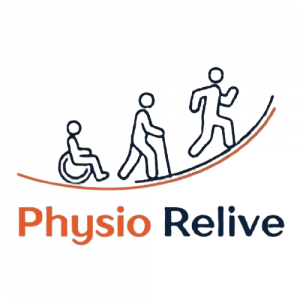Understanding the Value of a Good Physiotherapy Session:
A good activity session goes beyond temporary pain relief; it helps restore proper movement, strengthens weak muscles, and prevents further injuries. The real value lies in its holistic approach, where the physiotherapist not only treats the immediate discomfort but also identifies and addresses the root cause of the problem. During a quality session, cases receive targeted care through homemade methods, guided exercises, and practical advice tailored to their condition. Unlike quick fixes or general treatments, a well-structured activity session ensures gradual but continuing advancements in mobility, strength, and overall well-being, making it a pivotal step in long-term recovery and health improvement.

Why Quality Matters in Good Physiotherapy:
Quality in activity is essential because it directly impacts how effectively and safely a case recovers. A high-quality activity approach ensures that each session is grounded in proper assessment, substantiated planning, and substantiation-grounded ways, rather than general exercises. When the treatment is delivered with perfection and care, it not only provides faster pain relief but also improves strength, mobility, and long-term prevention of recurring issues. On the other hand, poor-quality activity may delay recovery, increase discomfort, or indeed worsen the condition. This is why choosing a proficient and professional physiotherapist who focuses on quality care is vital for achieving lasting health benefits.
How the Right Approach Speeds Up Recovery:
The right activity approach speeds up recovery by combining accurate opinion, substantiated treatment, and harmonious monitoring of progress. Rather than relying on temporary fixes, a professional physiotherapist identifies the underlying cause of pain or injury and tailors a plan that includes targeted exercises, a personalized remedy, and lifestyle guidance. This concentrated system not only reduces pain more effectively but also strengthens the affected muscles and joints, allowing the body to heal briskly. By addressing both the symptoms and their root cause, the right approach minimizes lapses, prevents further injuries, and helps cases return to their normal conditioning with greater confidence and improved mobility.

Clear Signs of an Effective and Good Physiotherapy Session:
An effective activity session can be marked by the conspicuous advancements a case makes both during and after treatment. Signs include reduced pain or stiffness, better mobility in the affected area, and a sense of increased comfort in performing diurnal conditioning. A good session also involves clear communication, where the physiotherapist explains the purpose of each exercise or fashion and adjusts the plan according to the case’s progress. Cases should feel engaged, motivated, and supported throughout the process rather than rushed or overlooked. Most importantly, harmonious advancements over time reflect that the remedy is working, making it a strong index of an effective activity session.
Relief From Pain and Stiffness After Treatment:
One of the most conspicuous signs of a successful activity session is the relief from pain and stiffness that cases frequently feel subsequently; it’s the result of good physiotherapy. While complete recovery may take time, effective treatment provides immediate comfort by reducing muscle pressure, improving blood flow, and enhancing common mobility. In ways similar to a homemade remedy, guided stretches and targeted exercises help release tension and restore flexibility, allowing joints to move more freely.
Improved Mobility and Flexibility Over Time:
A crucial sign of effective activity is the gradational enhancement in mobility and inflexibility that cases witness over time. Regular sessions concentrate on loosening stiff joints, stretching tight muscles, and strengthening weak areas, which inclusively enhance the body’s range of motion. This progress may start with small advancements, such as bending or walking further comfortably, and ultimately lead to greater independence in diurnal conditioning. Unlike temporary relief from anodynes, activity builds lasting changes by addressing the root causes of stiffness and confined movement. With thickness, cases recapture confidence in their physical capacities and enjoy a healthier, more active life.
Consistent Progress Tracking by the Therapist:
Harmonious progress shadowed by the physiotherapist is an essential part of a good treatment plan, as it ensures that every session moves the patient nearer to recovery. A professed physiotherapist regularly assesses advancements in pain situations, mobility, strength, and posture, and also adjusts the exercises or methods as demanded by signs of good physiotherapy. This ongoing evaluation not only helps in relating what’s working stylishly but also prevents delays or lapses in recovery. By setting measurable pretensions and reviewing progress with the case, the therapist creates a sense of provocation and consolation, making the entire mending process more structured, effective, and case-concentrated.
Qualities That Define a Good Physiotherapist:
A good physiotherapist is defined by a combination of professional moxie, strong communication chops, and genuine care for cases. They retain in-depth knowledge of mortal deconstruction and recuperation ways, allowing them to design effective, individualized treatment plans. Beyond specialized chops, they hear attentively, explain procedures easily, and encourage cases throughout their recovery trip. Empathy and tolerance are inversely important, as they help make trust and comfort during the remedy. By combining clinical capability with compassion, a good physiotherapist ensures not only physical recovery but also a positive and motivating treatment experience for every case.
Strong Knowledge and Clinical Expertise:
A good physiotherapist has strong knowledge of deconstruction and body mechanics, allowing an accurate opinion of reverse pain and injuries. Their clinical moxie helps in creating substantiated, effective treatment plans acclimatized to each case’s requirements. With substantiation-grounded ways, they ensure safe recovery while erecting trust and confidence in the mending process.
What to Expect During a Professional Physiotherapy Session:
A professional activity session begins with a thorough assessment, where the therapist precisely evaluates the case’s symptoms, medical history, and physical movements. Grounded on this assessment, an individualized treatment plan is created, which may include exercises, homemade remedies, stretching, or ultramodern ways such as electrotherapy. Throughout the session, the physiotherapist explains each step easily, ensures the patient feels comfortable, and adjusts the treatment according to progress. This structured and probative approach not only provides relief from pain but also builds trust and encourages active participation, leading to safer and faster recovery.
Thorough Assessment Before Starting Treatment:
A thorough assessment is the first step of quality activity, where the therapist precisely studies the case’s pain, posture, and medical history. This detailed evaluation helps identify the root cause of the problem rather than just addressing symptoms. With this understanding, the physiotherapist can design a safe and individualized treatment plan for effective recovery.
Guidance on Lifestyle and Home Exercises:
A good physiotherapist provides guidance on life changes and home exercises to support brisk recovery. Simple tips on posture, diurnal movements, and ergonomics help reduce pain. Regularly rehearsing recommended exercises at home strengthens the body and maintains long-term results.
How a Good Physiotherapist Builds Trust With Patients:
A good physiotherapist builds trust with patients by maintaining clear communication, showing genuine care, and involving them in every step of the recovery process through good physiotherapy. They explain the treatment plan in simple terms, set realistic pretensions, and regularly provide progress updates to keep cases motivated. By harkening to enterprises and conforming remedies according to individual comfort situations, they produce a probative terrain where cases feel valued and admired.
- Explaining the Treatment Process Clearly
- Setting Realistic Goals and Expectations
- Encouraging Patient Involvement in Recovery
Why Choosing the Right Physiotherapist Matters for Long-Term Health:
Choosing the right physiotherapist is pivotal for long-term health because proper care not only treats current pain but also prevents future complications. A professed physiotherapist identifies the root cause of problems, designs substantiated treatment plans, and attends cases on life adaptations that support lasting recovery from good physiotherapy. With the right moxie and approach, cases can recapture strength, mobility, and confidence while reducing the threat of recreating injuries.
- Preventing Recurring Injuries and Pain
- Supporting Sustainable Recovery and Wellness
- Ensuring Safe, Non-Invasive Treatment


